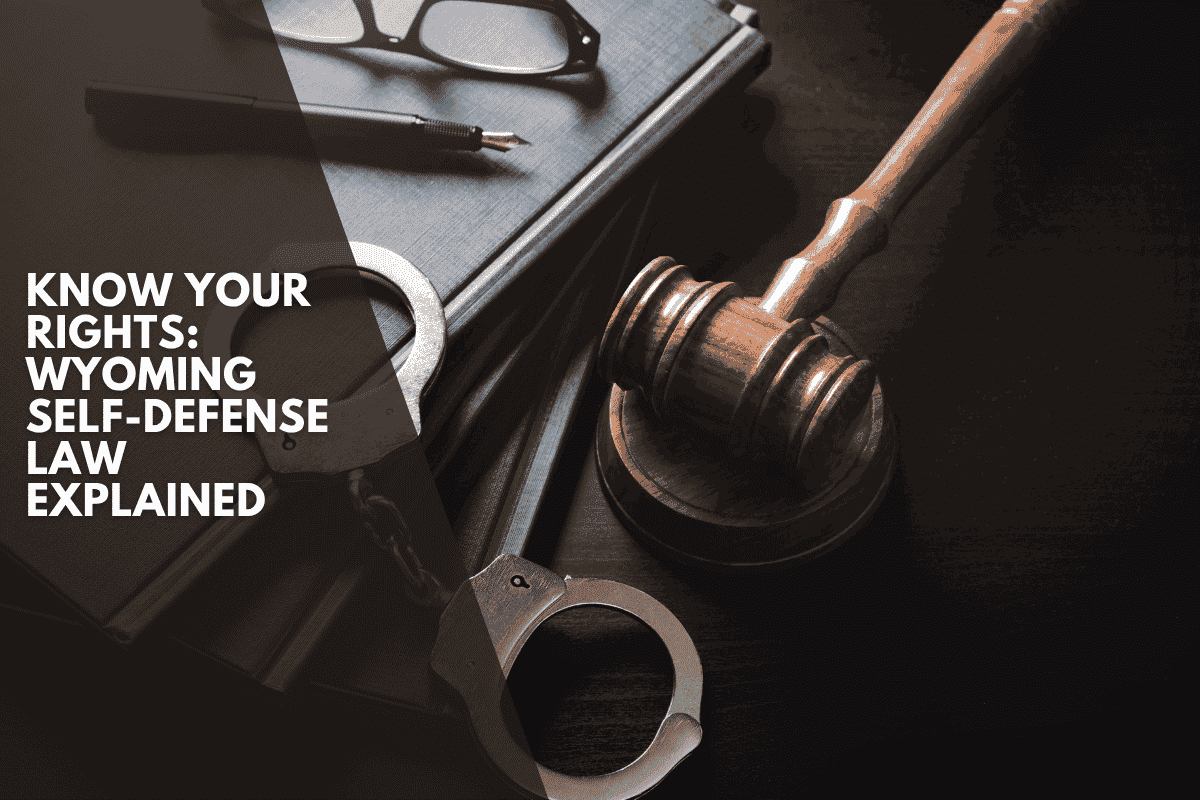Wyoming offers broad protections for individuals seeking to defend themselves, others, and their property. However, these protections are accompanied by important legal boundaries and responsibilities that must be understood to ensure the use of force is justified. Here’s a breakdown of Wyoming’s key self-defense laws and principles.
Key Principles of Wyoming Self-Defense Law
1. Stand Your Ground Law
No Duty to Retreat: Wyoming’s Stand Your Ground Law ensures that if you are lawfully present in a location and not involved in any criminal activity, you do not have to attempt to retreat before using force, even deadly force, in self-defense.
Where It Applies: This law applies not only in your home but also in your vehicle and in any public place where you have a legal right to be.
2. Castle Doctrine
Home Defense: Under the Castle Doctrine, you are presumed to have a reasonable fear of imminent harm if someone unlawfully and forcibly enters your home or habitation. In such cases, you can use force, including deadly force, to protect yourself against the intruder.
Expanded Protection: As of a 2022 Wyoming Supreme Court ruling, this doctrine also covers vehicles adapted for overnight accommodation. You do not need to prove the intruder actually entered—an attempt to enter is enough to justify defensive action.
Immunity: If the force used is justified under the Castle Doctrine, you are immune from criminal prosecution and civil lawsuits for injuries or death caused during the defense.
Legal Requirements for Self-Defense
To claim self-defense under Wyoming law, certain conditions must be met:
Imminent Threat: You must genuinely and reasonably believe that the use of force is necessary to prevent imminent death, serious bodily injury, or a violent felony.
Proportional Response: The force used must be proportional to the threat faced. Using excessive force (such as using a firearm in response to a push or shove) can lead to criminal charges.
Not the Aggressor: You cannot claim self-defense if you provoked or initiated the confrontation. If you started the fight, you lose the right to claim self-defense.
Lawful Presence: You must be in a location where you have the legal right to be. Engaging in illegal activity or being in a restricted area can invalidate your claim to self-defense.
Immediate Necessity: The threat must be immediate. You cannot claim self-defense if you pursue someone who has fled or use force after the threat has ended.
Special Considerations
Protecting Others: You are allowed to use force to protect others if they would have the legal right to defend themselves in the same situation.
No Weapon Required: The threat does not have to involve a weapon. Even a credible threat of serious harm can justify the use of defensive force.
Warning Shots: Firing warning shots is highly risky. It can be prosecuted as reckless or unlawful discharge, as it is not seen as a reasonable method of self-defense.
Law Enforcement Exception: Deadly force is not justified against law enforcement officers who are performing their official duties, unless they act unlawfully.
What Happens After Using Force?
Burden of Proof: If you claim self-defense, it is up to you to prove that your actions were justified. Courts will closely scrutinize both your belief in the threat and the proportionality of your response.
Civil Immunity: If your use of force meets the legal standards of self-defense, you are generally immune from civil lawsuits brought by the attacker or their estate.
Table
| Principle | Wyoming Law (2025) |
|---|---|
| Duty to Retreat | No, if lawfully present and not the aggressor |
| Castle Doctrine | Applies to homes and vehicles; presumption of fear |
| Use of Deadly Force | Allowed if there is a reasonable belief of imminent serious harm |
| Civil/Criminal Immunity | Yes, if the force used is justified |
| Proportionality | Force must match the threat |
| Aggressor Exception | No protection for the initial aggressor |
Wyoming law provides strong protections for individuals wishing to defend themselves, their families, and their property. However, it’s important to act within the bounds of the law by ensuring your response is reasonable, proportional, and justifiable. Courts will evaluate your actions thoroughly, so understanding these legal boundaries is critical to knowing your rights and protecting yourself legally.
Sources
[1] https://www.steventituslaw.com/blog/is-wyoming-a-stand-your-ground-state/
[2] https://mywaynecountynow.com/understanding-wyomings-stand-your-ground-law/
[3] https://www.steventituslaw.com/blog/navigating-self-defense-laws-a-guide-for-defendants/
[4] https://bestshotatfreedom.com/a-guide-to-stand-your-ground-in-wyoming/
[5] https://justiceforcowboys.com/2021/02/22/self-defense-wyomings-new-castle-doctrine/











